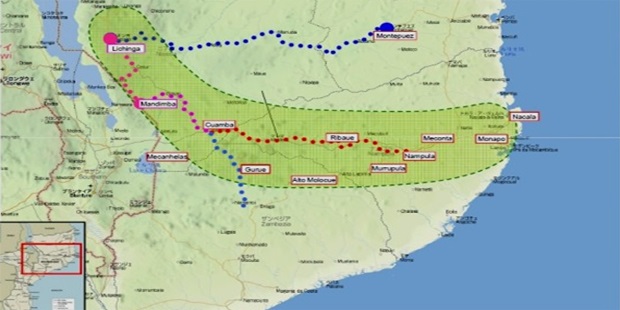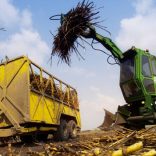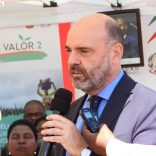Mozambique: Libya to invest in industrial rice production in Nampula - Notícias
Ministry ordered to release information on ProSavana – AIM report

Map: mercosul & cplp + brics
The Administrative Tribunal, the body that deals with the legality of public expenditure and of all administrative acts in Mozambique, has ordered the Ministry of Agriculture to make public all information of general interest concerning the agricultural development programme known as ProSavana.
This is a triangular cooperation programme between Mozambique, Brazil and Japan, intended to boost agricultural production in northern Mozambique.
The declared intention is to develop large scale commercial agriculture, using state-of-the-art technology, drawn from the Brazilian and Japanese experiences, as well as conservation agriculture techniques. The hope is to transform smallholder peasant farmers into commercial farmers.
Right from the start, the programme has been mired in controversy. It was first announced in 2011 when it was said that it would cover around 11 million hectares in19 districts in Niassa, Nampula and Zambezia provinces. Suspicions were aroused that this was a land grab, and that Mozambican peasants would lose their land rights.
This suspicion continued despite repeated government denials that any peasants would lose land. Civil society organisations campaigned against ProSavana, and with great effect. To date, the programme is effectively paralysed.
A major problem has always been a lack of information about the programme. The Civil Society bodies opposed to ProSavana complained that there was no transparency.
The current ruling by the Administrative Tribunal is the result of a move by the Mozambican Bar Association (OAM) to force the Agriculture Ministry to be more open. The OAM has been monitoring the land rights of communities affected by major investments, and in 2017 it effectively sued the Ministry.
The OAM put a request into the Administrative Tribunal, demanding that the Ministry release “information of public interest concerning the organisation, functioning and decisions that impact upon the rights and freedoms of citizens, particularly information on the land and food and nutritional security of the communities covered by ProSavana”.
According to its web page, the OAM found that the ProSavana office in the Ministry was not making this information available. The OAM noted that civil society bodies, and peasant households themselves, had misgivings about ProSavana “because of its negative impacts on the environment, on food security and land rights”, but also because of “defective public participation”.
The OAM found there was no information available about who the investors in ProSavana would be, or about the land management criteria.
“There is a lack of appropriate communication mechanisms”, said the OAM, and the communities had no access to regular information “about what ProSavana is and what its real objectives and impacts are”.
There was not even any information on how many peasants would be covered by the programme and how they would be transformed into commercial farmers.
“The secrecy and lack of information that characterise ProSavana grossly violate the provisions on the law on Freedom of Information”, the lawyers pointed out. That law “enshrines the principle of maximum publicity for information of public interest”.
The Administrative Tribunal agreed, and its brief ruling, published by the OAM, gives the Ministry of Agriculture ten days to make publicly available all the information requested by the OAM.
The OAM urged the ProSavana office in the Ministry to respect the Tribunal’s ruling and “open a space for an honest dialogue on the challenges of developing peasant agriculture”.












Leave a Reply
Be the First to Comment!
You must be logged in to post a comment.
You must be logged in to post a comment.